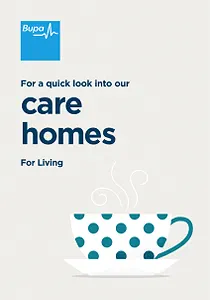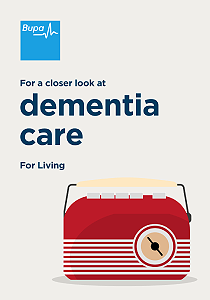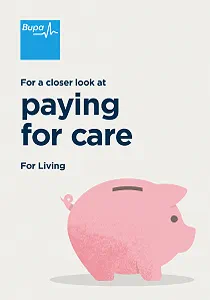What should I do if I think a relative
or friend has dementia?
If you're concerned about a friend, relative or even yourself, then you should seek help as soon as possible.
It’s important to seek help as soon as possible.
Your GP should be the first point of call as they can rule out other diseases or conditions that may cause similar symptoms.
An early diagnosis can help you plan for the future, by finding you the right level of support and helping you cope if you have to care for someone with dementia.
Getting diagnosed
What is dementia?
Dementia is a broad term that describes a set of symptoms caused by a gradual progressive loss of brain function. The symptoms include memory loss, mood changes, problems with communication and reasoning.
Getting the most from a consultation
If you’re supporting the person being diagnosed it may be useful to write down any questions you have beforehand, so you can ask the GP or specialist. Don’t be afraid to ask the doctor to explain words or phrases that you don’t understand.
Older people with dementia are often unaware they have a condition and it can be difficult for them to accept they need help. Finding out that a loved one has dementia is distressing, but understanding what is causing their change in behaviour can be reassuring and help you plan for the future.
How is dementia diagnosed?
If a doctor suspects dementia might be present, they’ll refer the person to a specialist (a neurologist, geriatrician or psychiatrist) for diagnosis.
Since all types of dementia have similar symptoms, it can be difficult to tell which type a person has. A diagnosis is usually based on a number of tests and procedures. These include assessing a person’s cognitive abilities with tests that measure memory, language and concentration. A physical and neurological examination may also be undertaken to rule out other illnesses.
Explaining it to others
If your loved one is living with dementia, their behaviour may start to raise questions from many people, such as children or neighbours.
Many people have family experience of caring for someone with dementia and will be very understanding once you have explained the situation. They may also be able to provide advice or support, giving you reassurance that others will be keeping an eye out if necessary.
Explaining the situation to children may be more difficult, especially if they have a close relationship with the person. It might be helpful to be as honest as you can, encouraging the child to ask questions so you can understand what they’re concerned about. Try to find activities that they can do together, such as playing cards, baking or discussing the past.
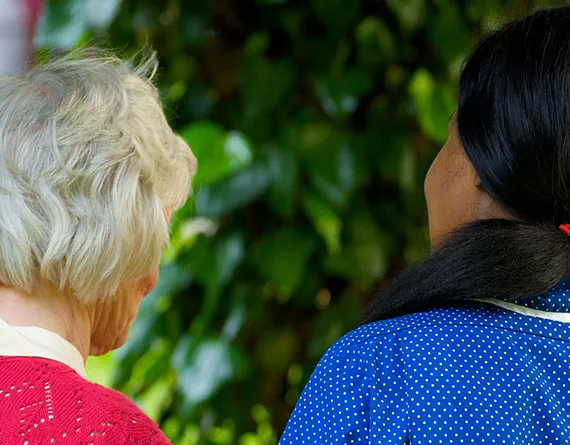
Planning for the future
In the later stages of dementia it can be helpful for you to remember details about the person's wishes, so you will know what choices they would make with regards to their care. You can also get them to record key elements of their life and personality, which can be useful if they have to move to a care home. It would also be helpful to talk to them about their future choices, such as what they would want to happen at particular stages, especially at the end of their life.
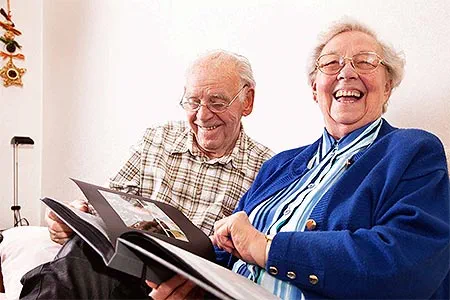
Help when you need it
Choosing a care home can be stressful, especially if you've never done it before. Where do you start? Well, right here. Our helpful, understanding care advisers offer free advice on anything from funding to finding just the right home.
Call a customer care adviser on 0345 600 4622^
Ask us to assess your situation and talk to you about paying for care, and how funding works.
Find care homes that might be right for you, and book one or more visits.
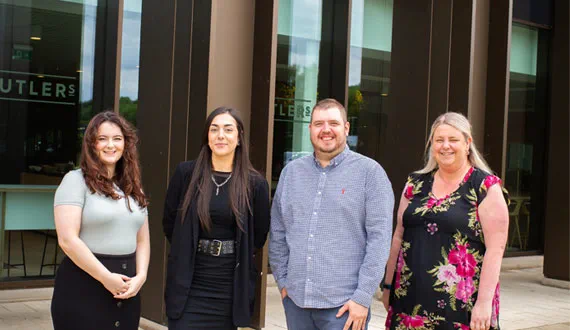
^ Lines are open 8am to 6.30pm Monday to Friday, 9am to 12.30pm Saturday. Closed Sundays and bank holidays. Calls are charged at no more than local rate and count towards any inclusive minutes from mobiles. We may record or monitor our calls.


